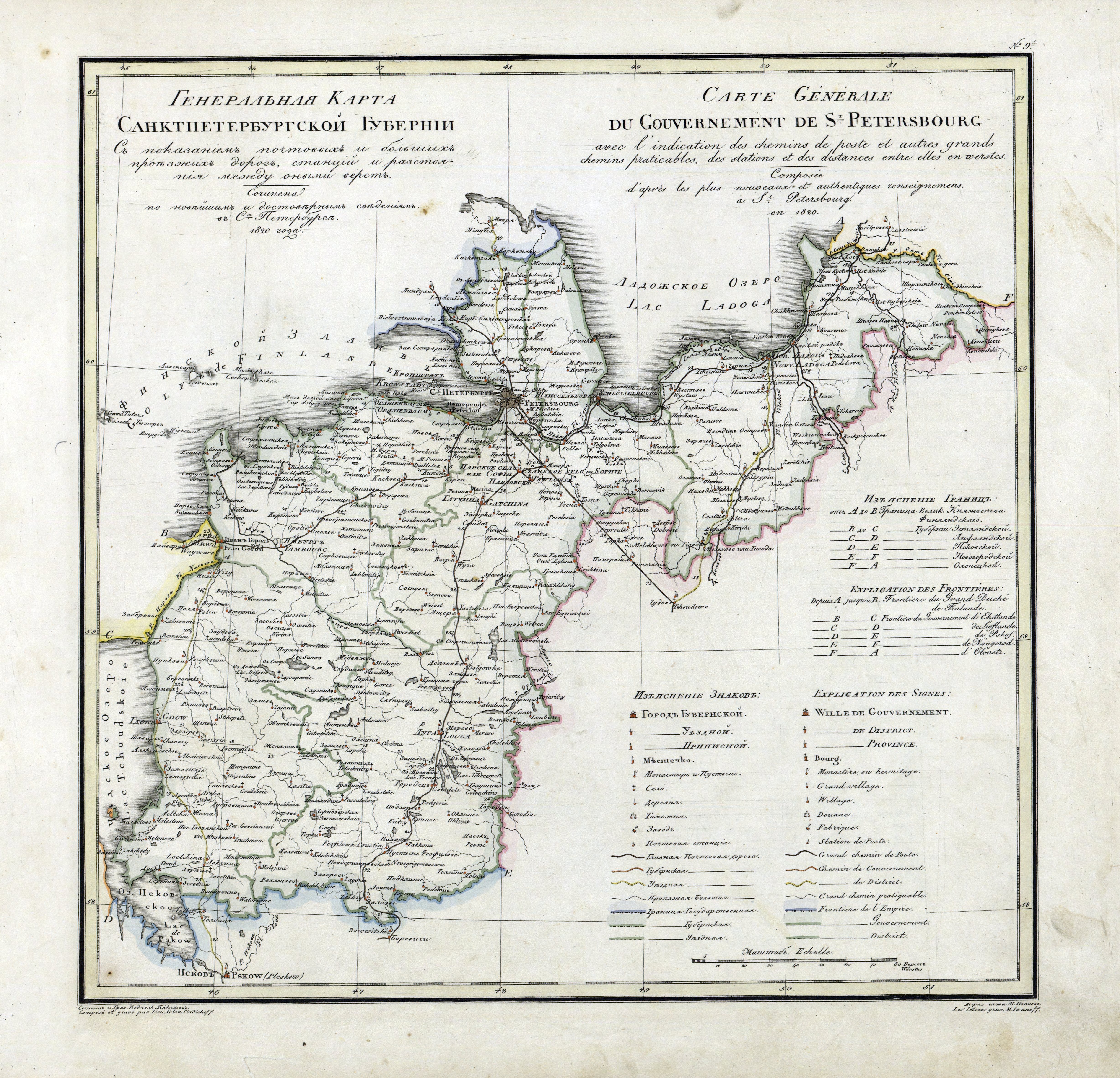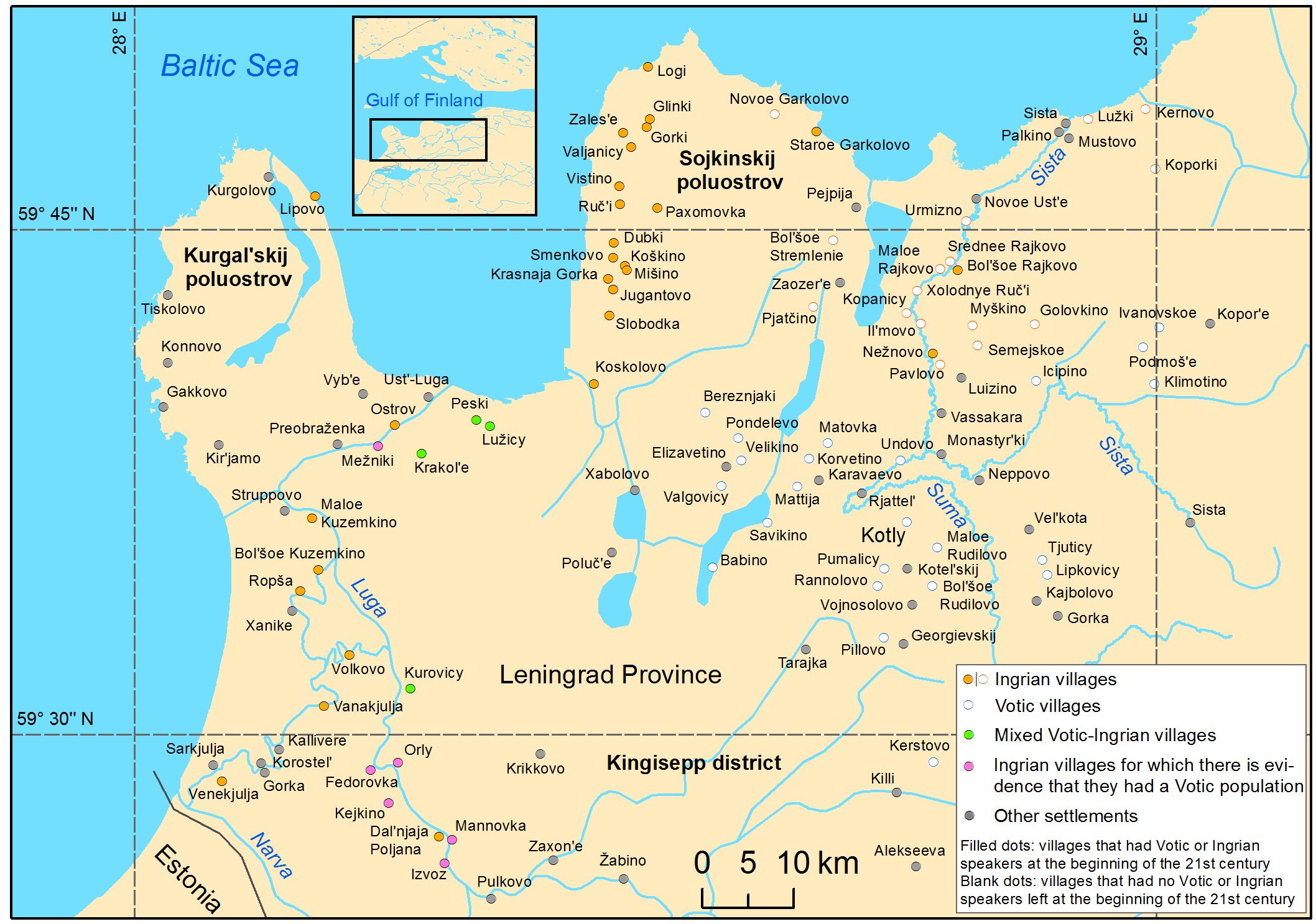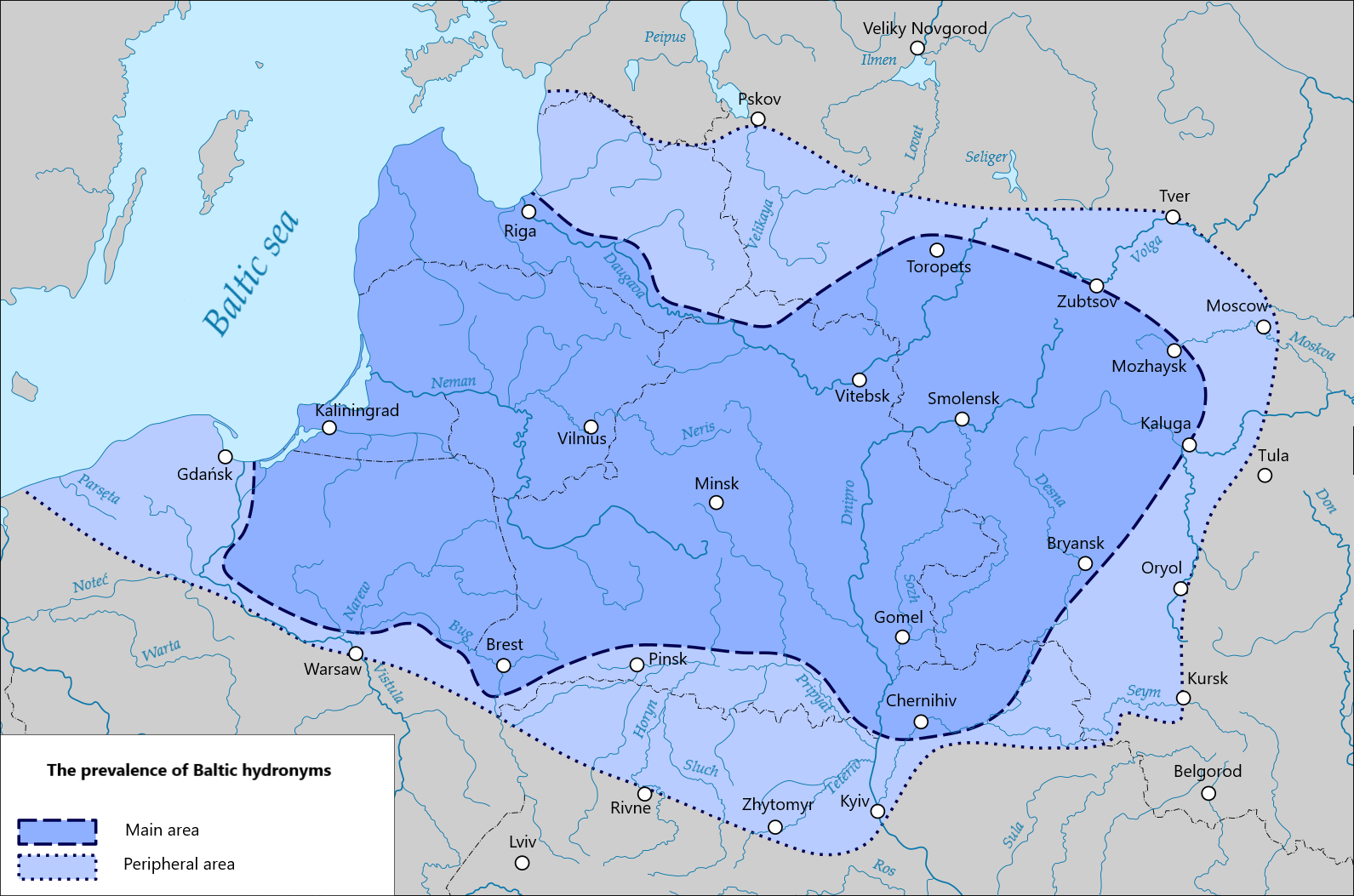|
Luzhsky Uyezd
Luzhsky Uyezd () was one of the eight subdivisions of the Saint Petersburg Governorate of the Russian Empire. Its capital was Luga. Luzhsky Uyezd was located in the southwestern part of the governorate (in the southwestern part of present-day Leningrad Oblast and in the northeastern part of Pskov Oblast). Demographics At the time of the Russian Empire Census of 1897, Luzhsky Uyezd had a population of 133,466. Of these, 91.7% spoke Russian, 3.6% Estonian, 1.3% Latvian, 0.8% Finnish, 0.7% Polish, 0.7% German, 0.5% Ingrian, 0.4% Yiddish, 0.1% Belarusian, 0.1% Romani Romani may refer to: Ethnic groups * Romani people, or Roma, an ethnic group of Indo-Aryan origin ** Romani language, an Indo-Aryan macrolanguage of the Romani communities ** Romanichal, Romani subgroup in the United Kingdom * Romanians (Romanian ... and 0.1% Lithuanian as their native language. Notable people * Theophan (Bystrov) (1875), ascetic archbishop References 1777 establishments in the Russian Emp ... [...More Info...] [...Related Items...] OR: [Wikipedia] [Google] [Baidu] |
Saint Petersburg Governorate
Saint Petersburg Governorate was a province (''guberniya'') of the Russian Empire, with its capital in Saint Petersburg. The governorate was composed of of area and 2,112,033 inhabitants. It was bordered by Governorate of Estonia, Estonian and Governorate of Livonia, Livonian Governorates to the west, Pskov Governorate to the south, Novgorod Governorate to the east, Olonets Governorate to the northeast, and Viipuri Province, Vyborg Governorate of the Grand Duchy of Finland to the north. The governorate covered most of the areas of modern Leningrad Oblast and Ida-Viru County, Ida-Viru, Jõgeva County, Jõgeva, Tartu County, Tartu, Põlva County, Põlva, and Võru County, Võru counties of Estonia. Establishment Ingermanland Governorate (, ''Ingermanlandskaya guberniya'') was created from the territories reconquered from the Swedish Empire in the Great Northern War. In 1704 prince Alexander Menshikov was appointed as its first governor, and in 1706 it was first Russian region des ... [...More Info...] [...Related Items...] OR: [Wikipedia] [Google] [Baidu] |
Ingrian Language
Ingrian (, ), also called Izhorian (, , ), is a Finnic language spoken by the (mainly Orthodox) Izhorians of Ingria. It has approximately 70 native speakers left, most of whom are elderly. The Ingrian language should be distinguished from the Ingrian dialect of the Finnish language, which became the majority language of Ingria in the 17th century with the influx of Lutheran Finnish immigrants; their descendants, the Ingrian Finns, are often referred to as Ingrians. The immigration of Lutheran Finns was promoted by Swedish authorities, who gained the area in 1617 from Russia, as the local population was (and remained) Orthodox. Dialects Four dialect groups of Ingrian have been attested, two of which are probably extinct by now: * Hevaha, spoken along Kovashi River and nearby coastal areas (†) * Soikkola, spoken on Soikinsky Peninsula and along Sista River * Ylä-Laukaa (Upper Luga or Oredezhi), spoken along Oredezh River and the upper Luga River (†) * Ala-Laukaa (Lo ... [...More Info...] [...Related Items...] OR: [Wikipedia] [Google] [Baidu] |
Uezds Of Saint Petersburg Governorate
An uezd (also spelled uyezd or uiezd; rus, уе́зд ( pre-1918: уѣздъ), p=ʊˈjest), or povit in a Ukrainian context () was a type of administrative subdivision of the Grand Duchy of Moscow, the Tsardom of Russia, the Russian Empire, the Russian SFSR, and the early Soviet Union, which was in use from the 13th century. For most of Russian history, uezds were a second-level administrative division. By sense, but not by etymology, ''uezd'' approximately corresponds to the English "county". General description Originally describing groups of several volosts, they formed around the most important cities. Uezds were ruled by the appointees (''namestniki'') of a knyaz and, starting from the 17th century, by voyevodas. In 1708, an administrative reform was carried out by Peter the Great, dividing Russia into governorates. The subdivision into uyezds was abolished at that time but was reinstated in 1727, as a result of Catherine I's administrative reform. By the USSR administra ... [...More Info...] [...Related Items...] OR: [Wikipedia] [Google] [Baidu] |
1927 Disestablishments In Russia
Nineteen or 19 may refer to: * 19 (number) * One of the years 19 BC, AD 19, 1919, 2019 Films * ''19'' (film), a 2001 Japanese film * ''Nineteen'' (1987 film), a 1987 science fiction film * ''19-Nineteen'', a 2009 South Korean film * ''Diciannove'', a 2024 Italian drama film informally referred to as "Nineteen" in some sources Science * Potassium, an alkali metal * 19 Fortuna, an asteroid Music * 19 (band), a Japanese pop music duo Albums * ''19'' (Adele album), 2008 * ''19'', a 2003 album by Alsou * ''19'', a 2006 album by Evan Yo * ''19'', a 2018 album by MHD * ''19'', one half of the double album ''63/19'' by Kool A.D. * ''Number Nineteen'', a 1971 album by American jazz pianist Mal Waldron * ''XIX'' (EP), a 2019 EP by 1the9 Songs * "19" (song), a 1985 song by British musician Paul Hardcastle * "Stone in Focus", officially "#19", a composition by Aphex Twin * "Nineteen", a song from the 1992 album ''Refugee'' by Bad4Good * "Nineteen", a song from the 2001 al ... [...More Info...] [...Related Items...] OR: [Wikipedia] [Google] [Baidu] |
1777 Establishments In The Russian Empire
Events January–March * January 2 – American Revolutionary War – Battle of the Assunpink Creek: American general George Washington's army repulses a British attack by Lieutenant General Charles Cornwallis, in a second battle at Trenton, New Jersey. * January 3 – American Revolutionary War – Battle of Princeton: American general George Washington's army defeats British troops. * January 13 – Mission Santa Clara de Asís is founded in what becomes Santa Clara, California. * January 15 – Vermont declares its independence from New York, becoming the Vermont Republic, an independent country, a status it retains until it joins the United States as the 14th state in 1791. * January 21 – The Continental Congress approves a resolution "that an unauthentic copy, with names of the signers of the Declaration of independence, be sent to each of the United States. *February 5 – Under the 1st Constitution of Georgia, 8 counties are ... [...More Info...] [...Related Items...] OR: [Wikipedia] [Google] [Baidu] |
Luzhsky Uyezd
Luzhsky Uyezd () was one of the eight subdivisions of the Saint Petersburg Governorate of the Russian Empire. Its capital was Luga. Luzhsky Uyezd was located in the southwestern part of the governorate (in the southwestern part of present-day Leningrad Oblast and in the northeastern part of Pskov Oblast). Demographics At the time of the Russian Empire Census of 1897, Luzhsky Uyezd had a population of 133,466. Of these, 91.7% spoke Russian, 3.6% Estonian, 1.3% Latvian, 0.8% Finnish, 0.7% Polish, 0.7% German, 0.5% Ingrian, 0.4% Yiddish, 0.1% Belarusian, 0.1% Romani Romani may refer to: Ethnic groups * Romani people, or Roma, an ethnic group of Indo-Aryan origin ** Romani language, an Indo-Aryan macrolanguage of the Romani communities ** Romanichal, Romani subgroup in the United Kingdom * Romanians (Romanian ... and 0.1% Lithuanian as their native language. Notable people * Theophan (Bystrov) (1875), ascetic archbishop References 1777 establishments in the Russian Emp ... [...More Info...] [...Related Items...] OR: [Wikipedia] [Google] [Baidu] |
Theophan (Bystrov)
Theophan of Poltava (born Vassili Dimitrievich Bystrov, ; 12 January 1875 – 6 February 1940) was a Russian archbishop and theologian in the Eastern Orthodox Church. He was widely known as the "only Russian ascetic bishop". Theophan was the occasional confessor of Tsar Nicholas II of Russia and his wife Alexandra. Early years Basil was born in Luzhsky Uyezd (now Shimsky District) as the son of a priest and baptized on the day of St. Basil the Great. In 1896 he finished his studies at St Petersburg Theological Academy, which he had entered as one of the youngest students. The year after he became assistant-professor in history of the Old Testament. In 1898 he became a monk under the name of Theophanes the Confessor; in 1901 archimandrite. In the summer of 1902, a student at the Ecclesiastical Academy named Leonid Feodorov approached Archimandrite Theophan seeking permission to interrupt his studies for the priesthood and be granted a passport for a foreign trip to Rome. Feodor ... [...More Info...] [...Related Items...] OR: [Wikipedia] [Google] [Baidu] |
Lithuanian Language
Lithuanian (, ) is an East Baltic languages, East Baltic language belonging to the Baltic languages, Baltic branch of the Indo-European language family. It is the language of Lithuanians and the official language of Lithuania as well as one of the official languages of the European Union. There are approximately 2.8 million native Lithuanian speakers in Lithuania and about 1 million speakers elsewhere. Around half a million inhabitants of Lithuania of non-Lithuanian background speak Lithuanian daily as a second language. Lithuanian is closely related to neighbouring Latvian language, Latvian, though the two languages are not mutually intelligible. It is written in a Latin script. In some respects, some linguists consider it to be the most conservative (language), conservative of the existing Indo-European languages, retaining features of the Proto-Indo-European language that had disappeared through development from other descendant languages. History Among Indo-European languag ... [...More Info...] [...Related Items...] OR: [Wikipedia] [Google] [Baidu] |
Romani Language
Romani ( ; also Romanes , Romany, Roma; ) is an Indo-Aryan languages, Indo-Aryan macrolanguage of the Romani people. The largest of these are Vlax Romani language, Vlax Romani (about 500,000 speakers), Balkan Romani (600,000), and Sinte Romani (300,000). Some Romani communities speak mixed languages based on the surrounding language with retained Romani-derived vocabulary – these are known by linguists as Para-Romani varieties, rather than dialects of the Romani language itself. The differences between the various varieties can be as large as, for example, the differences between the Slavic languages. Name Speakers of the Romani language usually refer to the language as ' "the Romani language" or '' (adverb)'' "in a Rom way". This derives from the Romani word ', meaning either "a member of the (Romani) group" or "husband". This is also the origin of the term "Roma" in English, although some Roma groups refer to themselves using other demonyms (e.g. 'Kaale', 'Sinti'). C ... [...More Info...] [...Related Items...] OR: [Wikipedia] [Google] [Baidu] |
Belarusian Language
Belarusian (, ) is an East Slavic languages, East Slavic language. It is one of the two Languages of Belarus, official languages in Belarus, the other being Russian language, Russian. It is also spoken in parts of Russia, Lithuania, Latvia, Poland, Ukraine, and the United States by the Belarusian diaspora. Before Belarus Dissolution of the Soviet Union, gained independence in 1991, the language was known in English language, English as ''Byelorussian'' or ''Belorussian'', or alternatively as ''White Russian''. Following independence, it became known as ''Belarusian'', or alternatively as ''Belarusan''. As one of the East Slavic languages, Belarusian shares many grammatical and lexical features with other members of the group. To some extent, Russian, Ukrainian language, Ukrainian, and Belarusian retain a degree of mutual intelligibility. Belarusian descends from a language generally referred to as Ruthenian language, Ruthenian (13th to 18th centuries), which had, in turn, descend ... [...More Info...] [...Related Items...] OR: [Wikipedia] [Google] [Baidu] |
Yiddish Language
Yiddish, historically Judeo-German, is a West Germanic language historically spoken by Ashkenazi Jews. It originated in 9th-century Central Europe, and provided the nascent Ashkenazi community with a vernacular based on High German fused with many elements taken from Hebrew language, Hebrew (notably Mishnaic Hebrew, Mishnaic) and to some extent Aramaic. Most varieties of Yiddish include elements of Slavic languages and the vocabulary contains traces of Romance languages.Aram Yardumian"A Tale of Two Hypotheses: Genetics and the Ethnogenesis of Ashkenazi Jewry".University of Pennsylvania. 2013. Yiddish has traditionally been written using the Hebrew alphabet. Prior to World War II, there were 11–13 million speakers. 85% of the approximately 6 million Jews who were murdered in the Holocaust were Yiddish speakers,Solomon Birnbaum, ''Grammatik der jiddischen Sprache'' (4., erg. Aufl., Hamburg: Buske, 1984), p. 3. leading to a massive decline in the use of the language. Jewish ass ... [...More Info...] [...Related Items...] OR: [Wikipedia] [Google] [Baidu] |
German Language
German (, ) is a West Germanic language in the Indo-European language family, mainly spoken in Western Europe, Western and Central Europe. It is the majority and Official language, official (or co-official) language in Germany, Austria, Switzerland, and Liechtenstein. It is also an official language of Luxembourg, German-speaking Community of Belgium, Belgium and the Italian autonomous province of South Tyrol, as well as a recognized national language in Namibia. There are also notable German-speaking communities in other parts of Europe, including: Poland (Upper Silesia), the Czech Republic (North Bohemia), Denmark (South Jutland County, North Schleswig), Slovakia (Krahule), Germans of Romania, Romania, Hungary (Sopron), and France (European Collectivity of Alsace, Alsace). Overseas, sizeable communities of German-speakers are found in the Americas. German is one of the global language system, major languages of the world, with nearly 80 million native speakers and over 130 mi ... [...More Info...] [...Related Items...] OR: [Wikipedia] [Google] [Baidu] |





